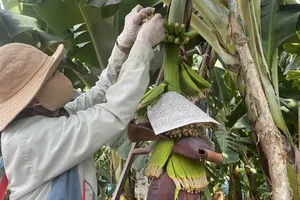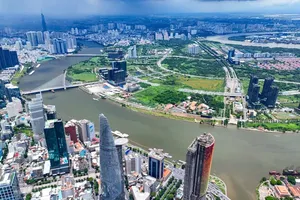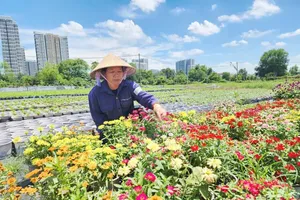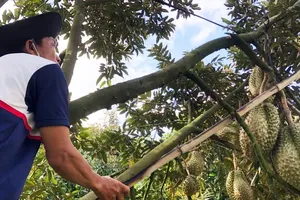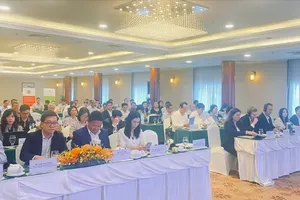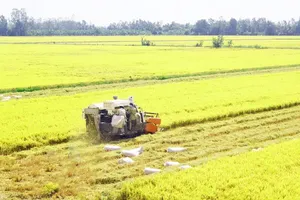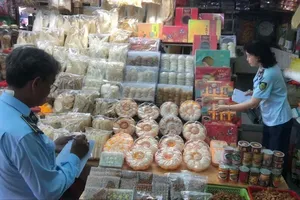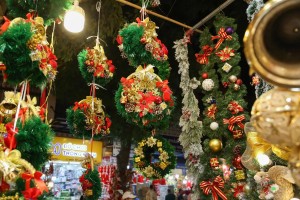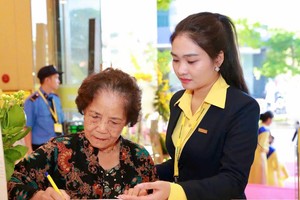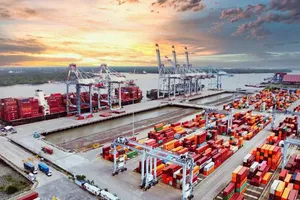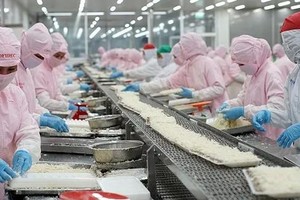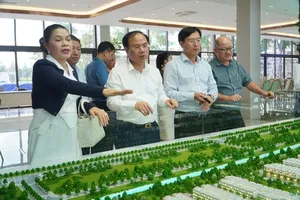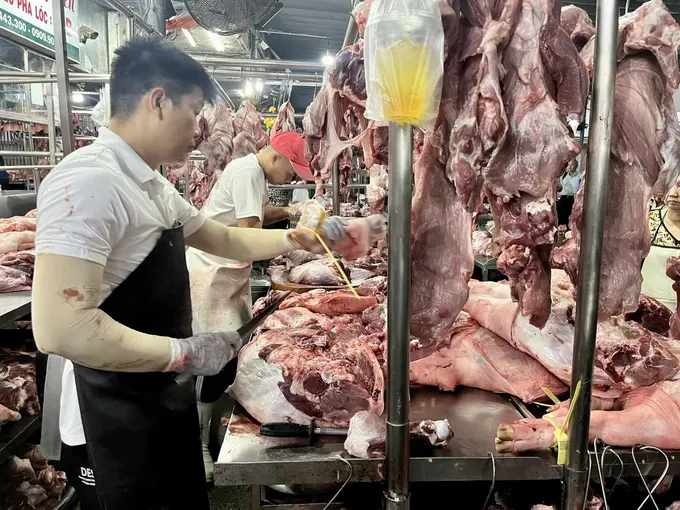
Concerns about pork without clear origins
Ho Chi Minh City is set to pilot a pork trading exchange in December. The initiative is part of the city’s broader efforts to create a stable sales channel for businesses while ensuring food safety for consumers in the country’s most populous urban area.
Pork is the most widely consumed meat in Vietnam, accounting for 65 percent–70 percent of total annual meat consumption. In Ho Chi Minh City alone, about 9,000–10,000 pigs are traded daily, with the market valued at over VND25 trillion (US$948.91 million) per year. However, as the year-end season approaches, the market often becomes more volatile, especially due to the sale of pork of unknown origin or without proper inspection.
During the first eight months of this year, around 1,000 outbreaks of African swine fever were reported nationwide, leading to the culling of approximately 300,000 pigs — a sign of alarming spread. Even more concerning, amid these outbreaks, authorities intercepted multiple shipments of diseased pork being transported to southern provinces for sale.
For example, at the end of August, authorities discovered an illegal pig slaughterhouse in Ho Chi Minh City’s Phu My Ward processing around 10 pigs each night in highly unsanitary conditions with pig blood and organs scattered across a dirty concrete floor. The operator admitted to running the facility since 2019, distributing uninspected pork to retail outlets.
Outside the Hoc Mon wholesale market in the early hours of October 22, numerous meat stalls appeared along Nguyen Thi Soc Street and National Highway 22, displaying pork on large aluminum trays without refrigeration, and even using fans to ward off flies.
Vendors stated that they sourced their products from various locations without any documentation. Vendors outside the market offer a lower price than the market rate by VND5,000 to VND10,000 per kilogram, attracting a considerable number of buyers. "We operate within the market, pay taxes, and our goods are fully inspected, yet the purchasing power is weak. Meanwhile, street vendors sell unregulated products at lower prices, drawing in more customers," expressed a trader from the Hoc Mon wholesale market with frustration.
According to the leaders of the wholesale markets, illegal selling points typically operate in the early morning, without business registration or veterinary inspections. They transport meat from small slaughterhouses and display it directly on sidewalks or in residential areas. When authorities arrive, the goods are quickly dispersed within minutes.
Selection of reputable participants for the exchange
The announcement of the forthcoming pork exchange has been positively received by numerous businesses. According to Director Le Van Tien of the Hoc Mon wholesale market, once operational, all transactions will be conducted electronically in a transparent and traceable manner. This system will not only enhance management efficiency but also reduce speculation and price manipulation in the pork market.
In fact, the idea of a centralized pork trading system dates back to 2019, when the Ho Chi Minh City Department of Industry and Trade collaborated with the Mercantile Exchange of Vietnam and several industry enterprises to study a modern trading model. Under this model, every product would have a traceability code, inspection certification, and safety standards. Recently, the Department of Industry and Trade submitted its findings and pilot proposal to the city’s People’s Committee.
According to the proposal, the Department of Industry and Trade will lead the pilot implementation, coordinating with relevant departments and enterprises in livestock production, slaughtering, processing, and distribution to finalize operational plans. The Mercantile Exchange of Vietnam will directly carry out the pilot, establishing standards for product specifications, quality, transaction procedures, and payment processes.
In coordination with local departments, the Mercantile Exchange of Vietnam will also monitor pilot operations, select reputable participants, set disease safety and food hygiene standards, ensure traceability, integrate data with the Te-Food system (which tracks food from farm to table), prepare technical contingency plans, and ensure tax transparency in all transactions.
The city’s Food Safety Management Authority will develop specific criteria and procedures for food safety inspections of pork traded through the exchange, share traceability data with the Mercantile Exchange of Vietnam and coordinate with other units to inspect, supervise, and publicly address violations according to law.
As for the roadmap, Ho Chi Minh City aims to complete the necessary technical infrastructure, transaction software, and management framework this year, with the pilot phase starting on December 1, 2025. After three months of operation, the Department of Industry and Trade will assess results and report to the People’s Committee for possible expansion.

